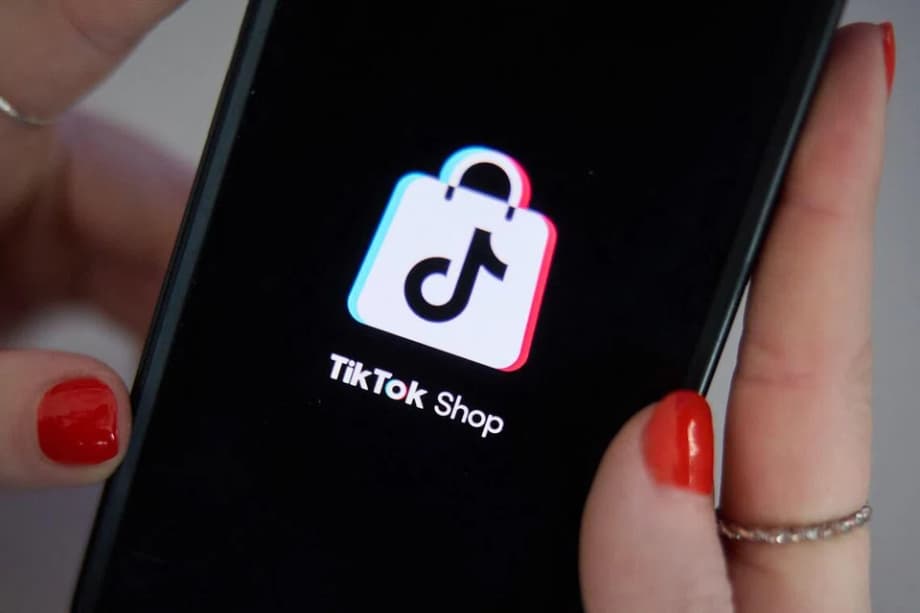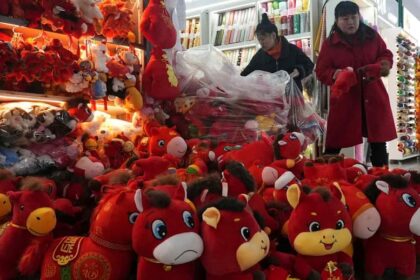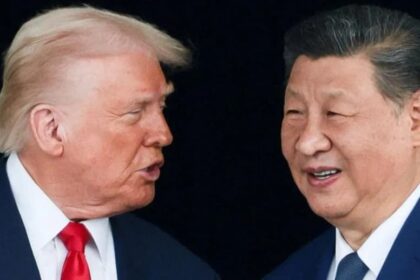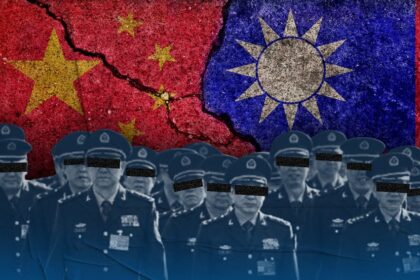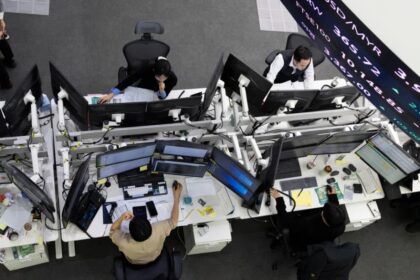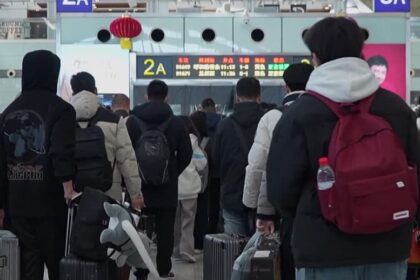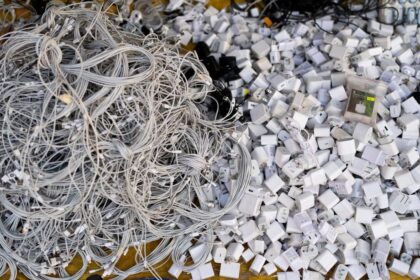Government steps up crackdown on thrift imports across online marketplaces
Indonesia has stepped up its long running fight against imported used clothing. The Ministry of Micro, Small, and Medium Enterprises summoned the country’s major ecommerce platforms and ordered them to remove listings and shut down online stores that sell imported secondhand apparel. The meeting on Nov 7 involved the Indonesian Ecommerce Association, whose members include Shopee, Tokopedia, TikTok Shop by Tokopedia, Lazada, Blibli, and other large operators. Officials said the move follows a direct instruction from President Prabowo Subianto to curb illegal imports that are undercutting local producers.
The instruction makes clear that selling imported used clothing through online marketplaces and social platforms is not allowed. It extends an existing prohibition that the government says has been ignored by parts of the digital economy. Several platforms began removing affected listings after being called in by the ministry, and follow up checks have been planned to review compliance.
Authorities argue that the policy protects Indonesia’s textile base and millions of small firms that depend on stable demand for locally made goods. The crackdown is also framed as a consumer protection measure, since the origin and hygiene of imported secondhand apparel cannot be verified easily. The ministry encouraged ecommerce operators to promote locally made products more prominently while they help sellers transition away from illegal stock.
What the law says
Indonesia prohibits the import and trade of most used goods under the Trade Law and implementing rules. The Trade Ministry’s Regulation No. 31 of 2023 lists restricted items and requires online marketplaces to prevent the sale of goods that violate the law, including imported used clothing. Marketplaces must take down illegal listings and act against repeat offenders that attempt to relist the same items.
Penalties for importing prohibited used clothing are severe. Importers can face up to five years in prison and fines up to 5 billion rupiah. Officials say small sellers are often unaware of the legal risk they face when they buy from smugglers or intermediaries. Enforcement has been aimed first at importers and major suppliers, with education and coaching for traders who agree to switch to legal products.
The MSME Ministry has stressed that reselling used clothing sourced inside Indonesia remains allowed. Locally sourced preloved items and personally owned goods can still be traded. The focus is on preventing cross border inflows of used clothing that evade customs checks, taxes, and product safety rules.
MSME Minister Maman Abdurrahman framed the online crackdown as protection for domestic producers. In a briefing in Jakarta he said the platforms must close access to illegal thrift listings.
“The influx of imported used clothing destroys the domestic market. We want to protect local producers and ensure ecommerce platforms shut down access to illegal sales,”
How platforms are enforcing the rules
Indonesia’s Trade Ministry has been purging illegal listings for more than a year. By March 2023, officials said roughly 40,000 links advertising imported used clothing had been removed across ecommerce and social commerce platforms. Enforcement teams described a constant game of cat and mouse with sellers who changed keywords, photos, and product titles to avoid detection.
Moga Simatupang, the Trade Ministry acting director general for consumer protection and commerce, described how sellers constantly change tactics and called for closer platform cooperation.
“Once it has been taken down, it can appear again in a different name. We need help from the ecommerce team to handle this,”
Platforms say they are combining manual investigations with automated tools to track evasive listings. Industry representatives have asked the government to share suspected link lists quickly so teams can remove them in bulk. Operators also want clear definitions of what qualifies as illegal inventory to avoid sweeping up legitimate domestic resale.
Radynal Nataprawira, Deputy of Public Affairs at Shopee Indonesia, said the company relies on reviewers rather than blanket keyword filters to avoid hurting compliant merchants.
“The process is done manually, not algorithmically, to ensure fairness,”
Other major players say they are aligned with the policy. Tokopedia and TikTok Shop by Tokopedia said imported used clothing is prohibited on their platforms and violations are removed. Lazada has stated it will follow government directions and apply Indonesia’s rules across its marketplace. The Indonesian Ecommerce Association said its members have been working since 2023 to reduce prohibited products and will keep coordinating with the ministries in charge.
Hilmi Adrianto, chairman of the Indonesian Ecommerce Association, backed the clampdown as a way to strengthen fair competition and the local fashion sector.
“This policy is important to strengthen a healthy online trade ecosystem and support the growth of Indonesia’s local fashion industry,”
Why the government is acting now
The pressure on Indonesian textile makers and small businesses has been rising. Official figures show imports of finished textile products and used clothing reached more than 78 million US dollars from January to July 2025, an increase of over 17 percent from the same period a year earlier. The main sources were China, Vietnam, and Bangladesh. The MSME Ministry separately reported a striking jump in used clothing inflows in recent years, including an estimated 3,600 tons in 2024 and about 1,800 tons by August 2025. Earlier years showed much smaller volumes. The data reinforces what many retailers and factory owners have felt anecdotally, that illegal used clothing has become easier to find online and offline.
Policymakers also point to a longer trend. Government research found that imports of secondhand clothing grew sharply across the last decade despite the prohibition, a sign that enforcement was not keeping up with the growth of digital marketplaces and social media commerce. Officials worry that if left unchecked, Indonesia could become a destination for bulk shipments of used apparel, hurting local weaving, dyeing, and garment firms that employ millions of workers.
President Prabowo Subianto directed the MSME Ministry to stop illegal thrift sales and at the same time develop alternative products for traders who previously depended on imported bales. The aim, according to the ministry, is to encourage a shift toward domestically produced fashion items that can compete on price, design, and trends.
Winners and losers in the thrift economy
Thrifting has become part of urban shopping culture in many Indonesian cities. Markets like Pasar Senen in Central Jakarta are known for racks of used apparel sourced from overseas. Shoppers value low prices and the chance to find unique items, and many see reuse as a way to cut waste. Traders who specialize in imported bales say the business gives them steady income and draws foot traffic to traditional markets.
Local garment producers view the surge in imported used clothing very differently. They say it pulls demand away from knitters, sewers, and small labels that already face higher costs than mass producers abroad. The MSME Minister has argued that relentless inflows of cheap used apparel erode the domestic market and risk pushing small Indonesian brands out of business.
The government is trying to avoid punishing traders who relied on thrift imports by offering a transition plan. The MSME Ministry is connecting sellers with hundreds of local clothing brands so they can act as resellers or official distributors. The ministry is also working on easier access to financing and measures to lower production costs for local makers so prices can remain within reach of thrift shoppers.
Temmy Satya Permana, Deputy for Small Enterprises at the MSME Ministry, said traders will not be left behind as the state guides them toward legal alternatives.
“We wont allow MSME traders to lose income. We are preparing collaboration schemes between local brands, ecommerce platforms, and sellers so they can continue selling legal products,”
Officials say some thrift vendors at Pasar Senen have expressed readiness to pivot to domestically made clothing, with support from local governments to keep their businesses viable. The ministry has clarified that domestic resale of personally owned or locally sourced used goods is still allowed, an important distinction for vintage stores and charity shops that do not depend on imported bales.
Part of a wider ecommerce shake up
The thrift crackdown sits within a broader reset of Indonesia’s digital commerce rules. Authorities have tightened controls on cross border retail, kept a very low tax free import threshold, and required that goods entering from countries without specific trade arrangements be handled by local importers. This has made direct to consumer shipping from overseas warehouses much harder.
Indonesia has also blocked the entry of platforms that rely on direct overseas shipping without local intermediaries. Temu, which rose quickly in many markets, has been kept out as officials argued that its model undercuts domestic sellers and complicates tax collection. Fast fashion operators that relied on cross border small parcel imports have also faced hurdles, while platforms with local importer networks, such as Shopee, Tokopedia, and Lazada, continue to operate under Indonesia’s rules.
In parallel, policymakers plan to tighten tax collection in the digital sector. A regulation slated for July 2025 would require marketplaces to withhold a small income tax from sellers within a defined revenue band. The proposal is intended to improve compliance and level the field between online merchants and physical retailers. The thrift enforcement effort and the tax plan point to the same goal, a more orderly online market where all sellers play by the same rules.
Challenges that still lie ahead
Cracking down on imported used clothing across a vast archipelago is not simple. Smugglers can reroute shipments through smaller ports, and bulk bales can be broken up and relabeled once inside the country. Online, merchants move quickly between platforms, change store names, and replace keywords and photos to defeat filters. Ministry officials have documented tactics such as replacing the word used with euphemisms like preloved and avoiding photos of the original sacks that reveal the imports.
Keeping marketplaces clean will require constant monitoring and better data sharing between government and platforms. Automated tools can help, but human review remains important because buyers and sellers often use slang and coded terms. Verifying whether a used clothing listing is imported or locally sourced is a specific challenge. Platforms may need to ask for proof of origin for sellers who operate at scale, while maintaining quick appeal channels so legitimate domestic resale is not blocked by mistake.
There is also the matter of price. Many thrift shoppers are chasing affordability. To shift demand toward local goods, the MSME Ministry says it will work with brands to keep prices competitive and expand designs that suit fast moving trends. Support programs, including financing and matchmaking between traders and local manufacturers, will be a key test of whether the policy can curb illegal imports without wiping out livelihoods.
As enforcement continues, the government has encouraged consumers to buy locally made apparel and to report suspicious listings. The message to importers is blunt. Illegal used clothing will be seized and destroyed, and those responsible face fines and jail time. For platforms, the expectation is clear, keep illegal thrift listings off the marketplace and help traders move into legal, locally sourced stock.
What to Know
- Indonesia ordered major ecommerce platforms to remove imported secondhand clothing listings after a Nov 7 meeting with the industry association.
- The legal basis includes the Trade Law and Trade Ministry Regulation No. 31 of 2023, which lists imported used clothing as restricted.
- Domestic resale of locally sourced used goods remains allowed, the ban targets illegally imported stock.
- The Trade Ministry said about 40,000 links selling imported used clothing were removed in early 2023, and monitoring continues.
- Officials reported around 3,600 tons of imported used clothing in 2024 and about 1,800 tons by August 2025.
- Penalties for importers can reach five years in prison and fines up to 5 billion rupiah.
- The MSME Ministry is linking thrift sellers with local brands, offering financing access, and working to reduce production costs for local makers.
- The crackdown aligns with wider ecommerce moves, including tighter cross border rules, blocking direct shipping platforms, and a planned seller tax in July 2025.


